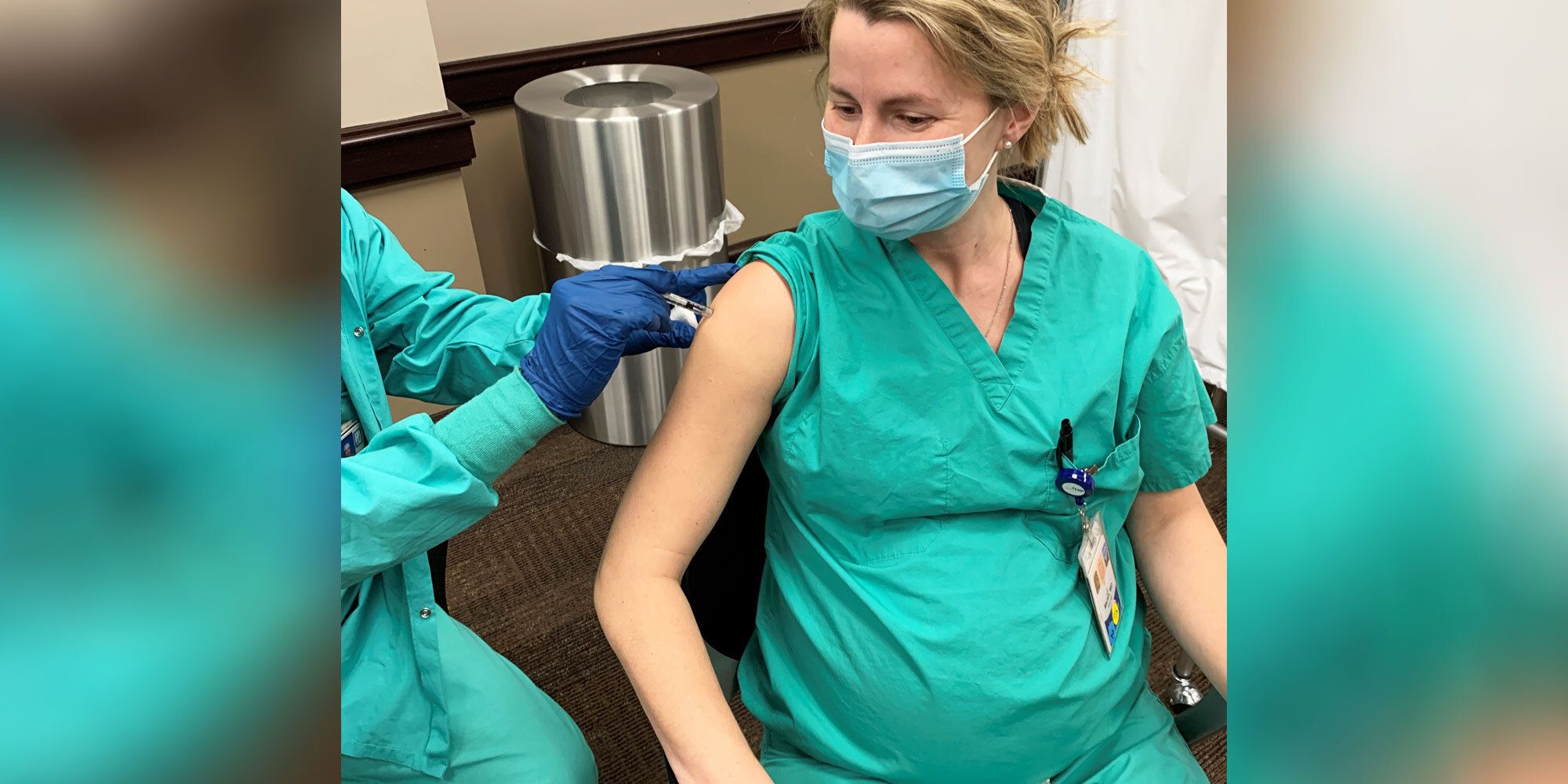We’re now several months deep into COVID-19 vaccine rollout, and doses are slowly making their way to the general population. Depending on where you live, you might be eligible to get vaccinated soon, if you’re not already. That may leave you wondering: What are the COVID-19 vaccine side effects I should be prepared for?
It’s more than understandable to have questions about the vaccines currently authorized for use in the U.S., which are the Pfizer-BioNTech, Moderna, and Johnson & Johnson vaccines. And it’s important to say this upfront: These are potential side effects. Meaning, you can get vaccinated and have absolutely zero issues. Plenty of people just end up with a slightly sore arm from the shot and that’s it, says William Schaffner, MD, an infectious disease specialist and professor at the Vanderbilt University School of Medicine.
Still, it never hurts to be fully informed about what could happen. Here’s what you need to know about possible side effects of the COVID-19 vaccines.
What are the common side effects of the COVID vaccines?
Because the Pfizer-BioNTech and Moderna shots are both messenger RNA vaccines, a.k.a. mRNA vaccines. They require two doses, administered two weeks apart. The Johnson & Johnson vaccine is a more traditional-style, single-dose vaccine, and the potential side effects may be slightly different. Still, they’re pretty similar.
These are the potential side effects for both the Moderna and Pfizer-BioNTech vaccines, as listed by the Centers for Disease Control and Prevention (CDC):
- Pain
- Swelling
- Redness
- Chills
- Tiredness
- Headache
The side effects usually start within a day or two after getting the vaccine, according to the CDC, which also states that they can feel like flu symptoms.
These are the most common potential side effects of the Johnson & Johnson vaccine, according to the Food and Drug Administration (FDA):
- Pain at the injection site
- Headache
- Fatigue
- Muscle aches
- Nausea
These side effects usually happened for people within one to two days after getting vaccinated and lasted for one to two days, according to the FDA.
With the two-dose vaccines, recipients are more likely to experience side effects after the second shot, Dr. Schaffner says. Why? Your immune system is now primed to jump into action—and does. Enter the side effects. “This is normal,” he says.
What are the rare side effects of the COVID-19 vaccines?
The biggest rare possible side effect of the COVID-19 is anaphylaxis, a severe and potentially life-threatening allergic reaction. With anaphylaxis, your immune system overreacts by releasing chemicals that cause allergy symptoms, per the American Academy of Allergy Asthma & Immunology (AAAAI). That can lead to symptoms like swelling, nausea, vomiting, a skin rash, and difficulty breathing. If you experience any of these symptoms after getting the vaccine, call 911 or flag down a medical staffer if you are at the vaccine site.
The reaction “occurs [with] about five per million doses,” Dr. Schaffner says, adding, “that’s well recognized, and we’re coping with that.” You will be under observation from medical professionals for 15 minutes after you’re vaccinated, per CDC guidelines. While it’s not a perfect plan, most severe allergic reactions would happen during that time frame and medical staff should be able to help you ASAP, Dr. Schaffner says.


The Society of Breast Imaging (SBI) has also warned that women who were recently vaccinated could have swelling and a lump in the lymph nodes of their armpit that can be mistaken as a sign of breast cancer. As a result, the SBI recommends that women wait until four weeks after getting the vaccine to have a mammogram.
Beyond that, Dr. Schaffner says, it’s really hard at this point to directly tie the vaccine to any other rare side effects. For example, there have been some reports of people experiencing Bell’s palsy (a condition that causes temporary weakness or paralysis of the muscles in your face, per the National Institute of Neurological Disorders and Stroke) after getting vaccinated. “Whether it’s related to the vaccine is still under investigation,” Dr. Schaffner says. “Bell’s palsy also occurs in the general population and it’s occurring in the vaccinated group at the same rate it happens in the general population.” As a result, Dr. Schaffner says, doctors don’t think the vaccine causes Bell’s palsy in some people. But, again, it’s still being investigated.
There have also been reports of some people experiencing lip swelling after having the Moderna vaccine in particular. However, this has been tied to getting lip fillers and, again, is very rare. (The Moderna trial only found two cases of this happening out of 30,000 study participants, per FDA data.)
Are the side effects different depending on the vaccine you get?
Not really. The potential side effects listed for each vaccine, be it Moderna, Pfizer, or Johnson & Johnson, are pretty much the same. All of the vaccines are crucial to saving lives and ending the pandemic—and Dr. Schaffner says you shouldn’t try to pick one vaccine over another or defer getting vaccinated over side effect concerns.
How do we know the COVID-19 vaccines won’t have long-term side effects?
Technically, it’s impossible to know for sure, given that the vaccines are less than a year old. But Dr. Schaffner says it’s highly unlikely for the vaccines to have long-term side effects. “Thinking of all the vaccines we use in childhood and adulthood, I can’t think of any long-term side effects,” he says. “Vaccines don’t have a bad effect that occurs eight months, a year or two, or longer.”
Vaccines also go through an incredibly rigorous authorization and approval process with the FDA, requiring lab studies before they can even be tested on humans, Dr. Schaffner says. That’s followed by three clinical trials and an analysis of the data by government experts before it hits the general public. If at any point the FDA thought a vaccine wasn’t safe, they wouldn’t release it, Dr. Schaffner says.
If it helps, Dr. Schaffner recommends taking a look at the *huge* number of people vaccinated, and how few have experienced serious side effects. “We’ve distributed nearly 77 million doses so far, and we’re watching for side effects with great care,” he says. “Rest assured that these are wonderfully effective vaccines.”
If you have questions about the COVID-19 vaccine, talk to your doctor. They should help answer your personal questions and share info that is personalized to you and your health.
Source: Read Full Article







